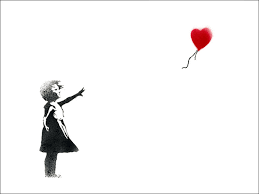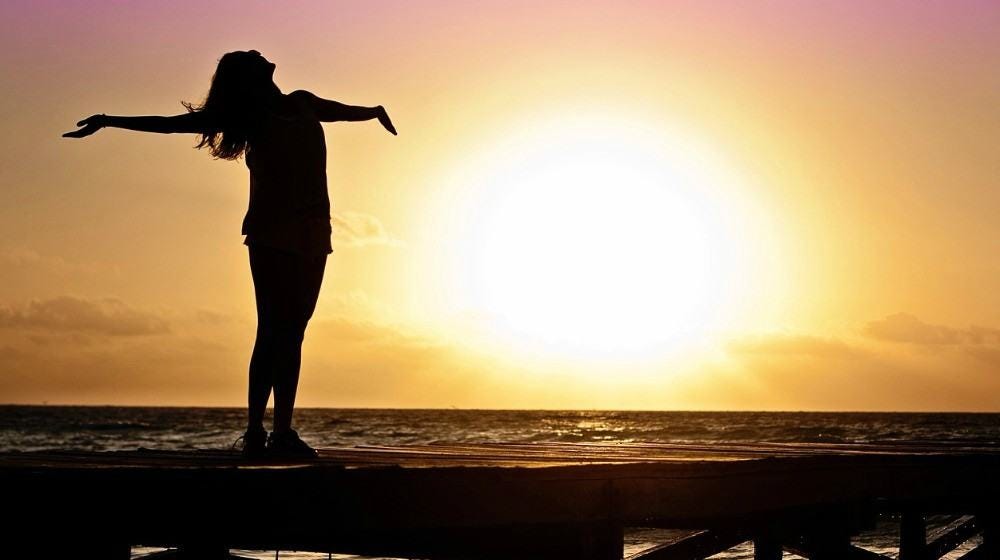They say nothing lasts forever. They’re wrong.
The first law of thermodynamics tells us that energy can neither be created nor destroyed, it can only be transformed from one type to another.
The first law of mass conservation tells us much the same thing about matter. Can’t create new matter or destroy existing matter. Can only convert them.
Think about it. When you burn wood, you’ve converted it into heat. The heat transforms into charring or burning, or something else. The universe is a closed system. Some energy and matter are constantly seeping out slowly, and that’s called entropy.
But in general, everything lasts forever. It’s just that nothing stays the same forever. Everything is always changing.
Embracing Impermanence
Buddhists have an interesting attitude toward the fact that everything is always changing. They see it as impermanence; nothing stays the same forever. And they implore us to embrace that impermanence. Celebrate it. See it as one of the few certainties in life. Paradoxically, the only real constant is change, everything is constantly changing.
One interpretation is that while none of us live forever, we do exist forever.
Author Rowan Coleman said, “For we are all made of stars, my beloved. You and I, and all of life, we were all born out of the death of a star, millions of billions of years ago. A star that lived long and then, before its death, burned at its brightest, its fiercest - an enflaming supernova.”
Famed scientist Carl Sagan agreed, with more clarity, saying, “"The nitrogen in our DNA, the calcium in our teeth, the iron in our blood, the carbon in our apple pies were made in the interiors of collapsing stars. The cosmos is within us. We are made of starstuff. We are a way for the universe to know itself.”
Our consciousness, which many see as the sum of our existence, doesn’t last forever. But the molecules, the atoms, the particles that our bodies are composed of are never destroyed. They transform. They transform into plants, stones, rockwalls, sheet metal, other creatures. They transition from one to the next to the next as they have for millions and billions of years. We have always been here. We will always be here. We’re just not going to have this current consciousness all that long. In fact, only for an infinitesimal fraction of time.
Although we don’t know what happens after our body ceases working, and many people believe many different things about that, one likely possibility is that we return to where we were before we were born. That is, nothingness. No consciousness at all. So, if you fear that, remember that you have been there before.
Ultimately, the key is to learn to let go of things. Let go of things we’re attached to.
Love
One of the most profound benefits of our momentarily held consciousness is the opportunity to experience love. To love and be loved. To truly cherish and enjoy the presence of another living being. Might be a person, a mate, or perhaps an animal. A pet. When our consciousness is shared with their consciousness, we feel insulated from all that is painful in the world. For that time, we are theirs and they are ours and the sharing is simply magical.
Love feeds us. Inspires us. Enables us to achieve greater insight and experience greater happiness than anything else can elicit. We experience more perfect moments when we are with someone we love, even if those moments are painful.
One perfect moment for me came when I hoisted my beloved dog Jenny up on my shoulder to carry her into the veterinarian’s office where her suffering would be put to an end. She had developed inoperable masses in her stomach and one look in her eyes told me she wanted me to relieve her pain. It was time.
On the one hand, it was among the most difficult moments of my life. On the other, I felt closer to her at that moment than ever. I experienced her pain, her sorrow, and her relief that it was going to end. While I’ve never felt so sad, I’ve also never felt so alive and engaged in living life.
In the course of my life, I’ve adopted and loved a dozen dogs. Three are still with me, and I cherish every moment I spend with them. Sometimes they remind me of Jenny, or some of the others who have gone before them. I still love every one of them, and I still cherish their memory, and know that everything other than their consciousness still exists. My fondest wish is to encounter those consciousnesses again someday.
Love and Loss
The older you get, the more contemporaries you lose. Great friends, many of whom you’ve known for most of your life, now gone. There’s an emptiness you can’t avoid. The deep desire to converse with them again. To be with them again.
Consider that emptiness to be a gift.
Had you never enjoyed their company, their kinship while they were alive, you wouldn’t feel this emptiness now, so the emptiness is really a gift, an emotion to hold onto once they’re gone. Whatever lessons you’ve learned from them, teach those to others. Share their wisdom, insight, and their love. Help others to benefit from the fact that they were ever here. Spread them amongst those you care about. Keep doing that and keep them alive forever.
My own father passed when I was 15 years old and he is still always with me more than 50 years later.
The first man to set foot on the moon, astronaut Neil Armstrong, once observed that every human has a finite number of heartbeats. He suggested that our mission was to spend as many of them experiencing joy as we possibly could. This idea gets accelerated when we suddenly find out that someone dear to us has a terminal illness. Their life is going to be cut short. We won’t get to enjoy them, nor they us, for as long as we had always expected.
The only response left to us is to do everything possible to extract as much joy out of every moment spent together from that point forward. Lamenting is pointless. Striving for a cure is absolutely necessary. Making the most of the remaining time is crucial.
This Thing About Living in the Moment
When I first moved out to Arizona in 2013 one of my goals was to learn about mindfulness meditation. I was very angry, and very burnt out by the New York environment I had grown up in for all my life. I was seeking more peace.
To my dismay, what I found was Buddhism. Every book I looked at, all the materials about mindfulness were steeped in Buddhism. I had already had my fill of organized religion with Judaism. I had no desire to experience more.
Then I came upon Dan Harris’ wonderful book, “10% Happier” in which he describes his journey, which was exactly like the one I was now on. I then set out to read every book referenced in his bibliography.
Though neither of us wanted to deal with Buddhism, we were exposed to enough of it to realize that there were some good lessons to be found once one discarded all the mumbo and the jumbo. Here’s what I learned:
The Past: It’s really pointless to dwell upon or miserate about the past. All the thinking you can do will never change it. It’s done. Set. Unchangeable.
The Future: Worrying about the future is similarly pointless. You may step outside and get hit by a bus. Then you never experience all those awful things you were worried about. Worry wasted.
Now: Now is really all we’ve got. The present moment. The moment we’re living in. We can make the most of it, extracting all the wonder it has to offer, or we can waste it. Whichever we choose, it will never come again. So, we have to be content with the next moment, unless we waste that too. Foolishness. Don’t waste those moments. Maximize them. Optimize them. Find the joy in every single moment of your life. Armstrong was right.







